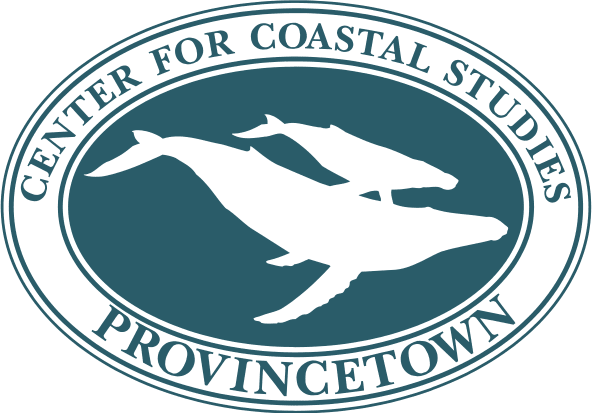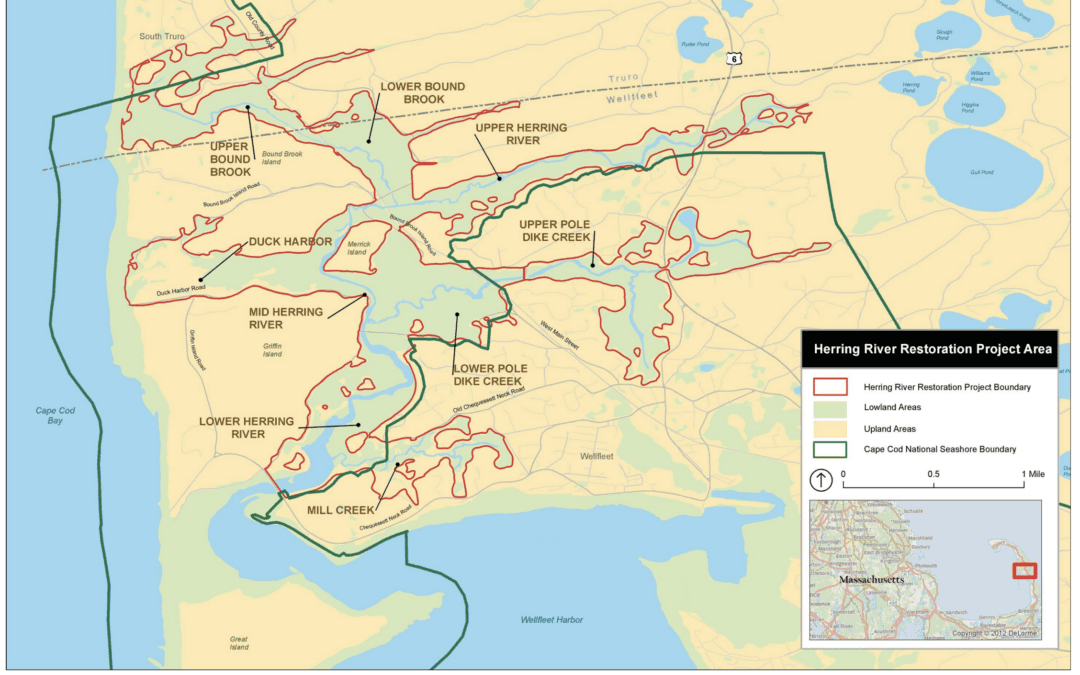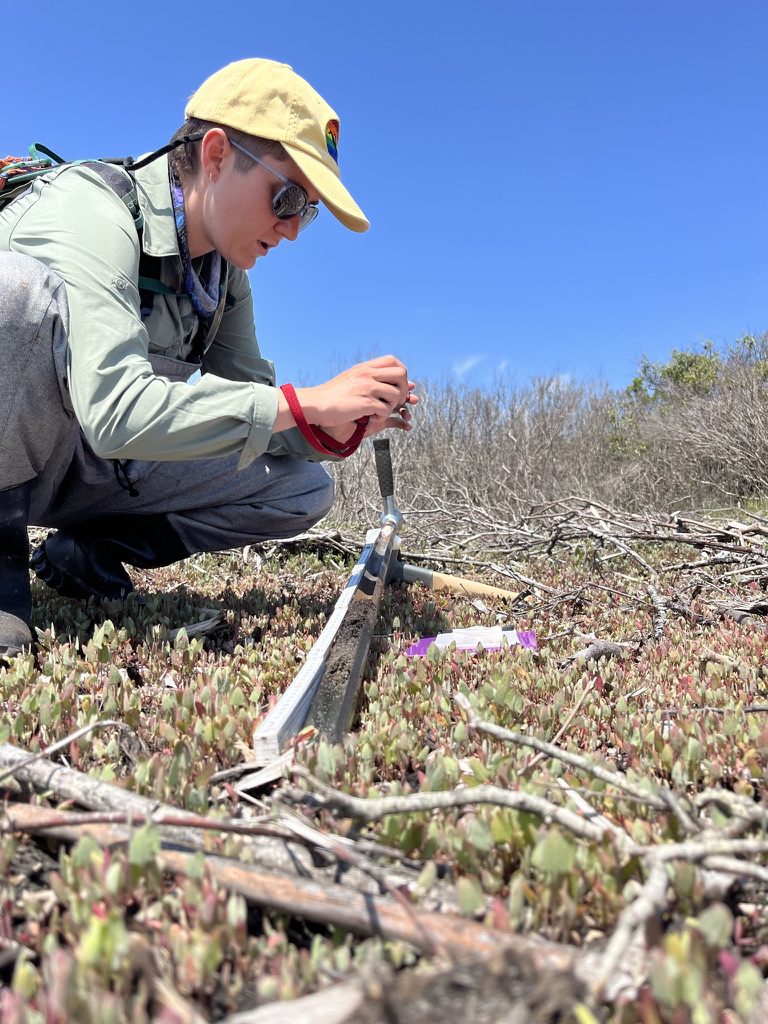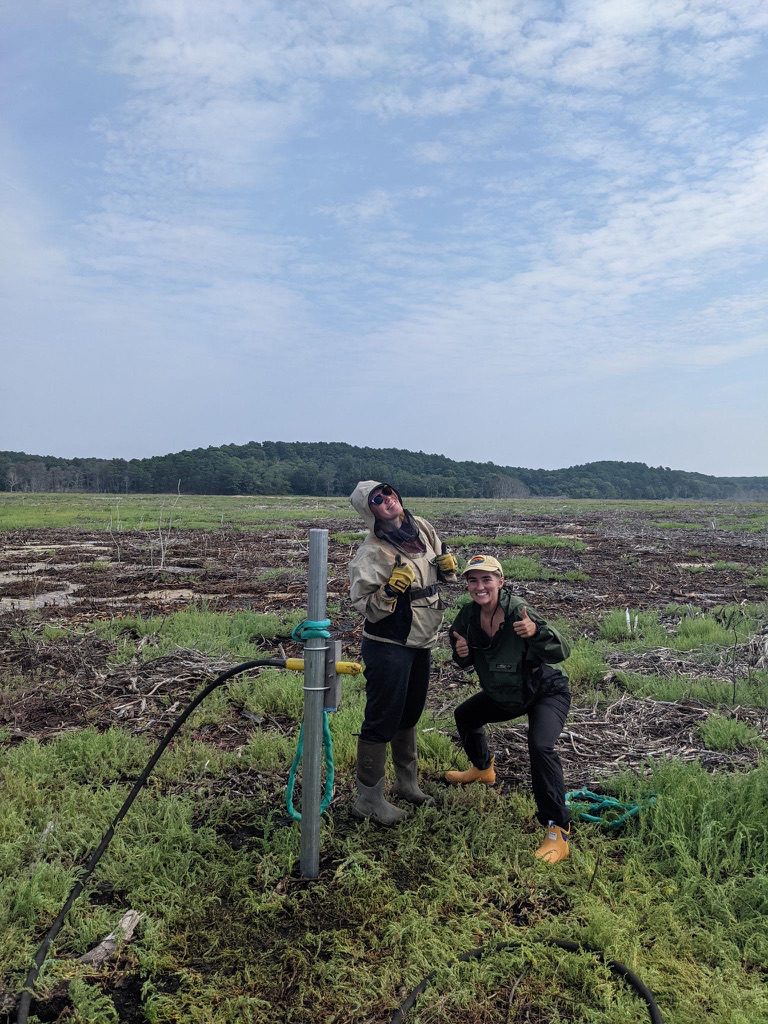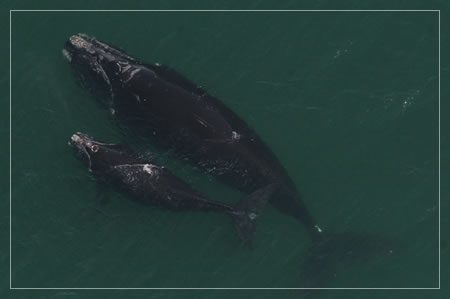Geologists from the Center for Coastal Studies will conduct surveys this winter in Wellfleet’s Duck Harbor to gain insights into how best to restore tidal marshes. The upcoming research follows an announcement by the National Park Service that it plans to continue restoration efforts in the Duck Harbor area of the park.
Frequent and unusual saltwater overwash events in Duck Harbor were first observed in January, 2021. These overwash events destroyed the woody vegetation there, 80 acres of which were cleared and mulched in spring 2023 to encourage the transition to a salt marsh. A remaining 40 acres of vegetation will be removed this winter in a project managed by Ducks Unlimited and funded with a grant from the U.S. Fish and Wildlife Service.
The natural events occurring in Duck Harbor present a valuable and rare opportunity for geological research, explained Mark Borrelli, Director of the Center for Coastal Studies’ Seafloor Mapping Program. Normally, when an overwash event occurs, sand and sediment are deposited with the overwash, limiting further events. Overwash events are therefore relatively rare. In Duck Harbor, however, sediment is not accumulating, and overwash events occur every few weeks with high tides. The reason for the lack of sediment deposits is unclear, but Borrelli theorizes it may be due to the gravelly composition of the area that is overwashing.
Regardless of the reason, he said, “it’s a golden opportunity to get data to study the effects of overwashes on coastal vegetation. It’s like watching a landslide in slow motion. We get to slow down nature and watch it happen.”
One of those watching it happen is Katie Castagno, Director of the Center’s Land-Sea Interaction Program. Over the past summer, Katie and her team began assembling a valuable data set, taking more than 200 sediment cores.
Duck Harbor, she explained, is part of the Herring River floodplain and has gone through many changes over the years. More than a hundred years ago, it was a small harbor. It then shoaled to become a freshwater marsh, and then evolved into a forest. The saltwater overwash has now killed the forest.
By conducting experiments in Duck Harbor as natural overwashing occurs, Borrelli and Castagno hope to gain insights that can be applied in marsh restoration projects elsewhere, including the nearby Herring River, which is undergoing a multi-year, multi-million-dollar restoration effort.
“We see what’s happening in Duck Harbor as an analog to what’s going to happen in the Herring River,” explained Castagno.
“By surveying formerly vegetated areas in Duck Harbor, we’re gaining a better idea of what will happen on the Herring River if and when vegetation is removed,” said Borrelli.
Tidal marshes provide numerous ecosystem services, including storing and sequestering carbon, increasing coastal protection, and acting as a nursery for key commercially-important species. Unfortunately, marshes have been routinely restricted and ditched throughout the last three centuries for farming and mosquito control, interrupting normal tidal flow and severely degrading the habitat and its associated ecosystem services.
“Almost all the marshes in New England have been altered in some way by humans,” says Castagno, “The Herring River Restoration Project is the largest tidal restoration in New England, and the research we’re doing is key to making sure it’s a success.”
“We really want more salt marsh grasses,” she added.
Photos: Research Assistant Molly Tucker (left) and Katie Castagno, Director of the Land-Sea Interaction Program, conduct surveys in Duck Harbor.
Map: Herring River Restoration Project Final Environmental Impact Statement / Environmental Impact Report (May 2016)
